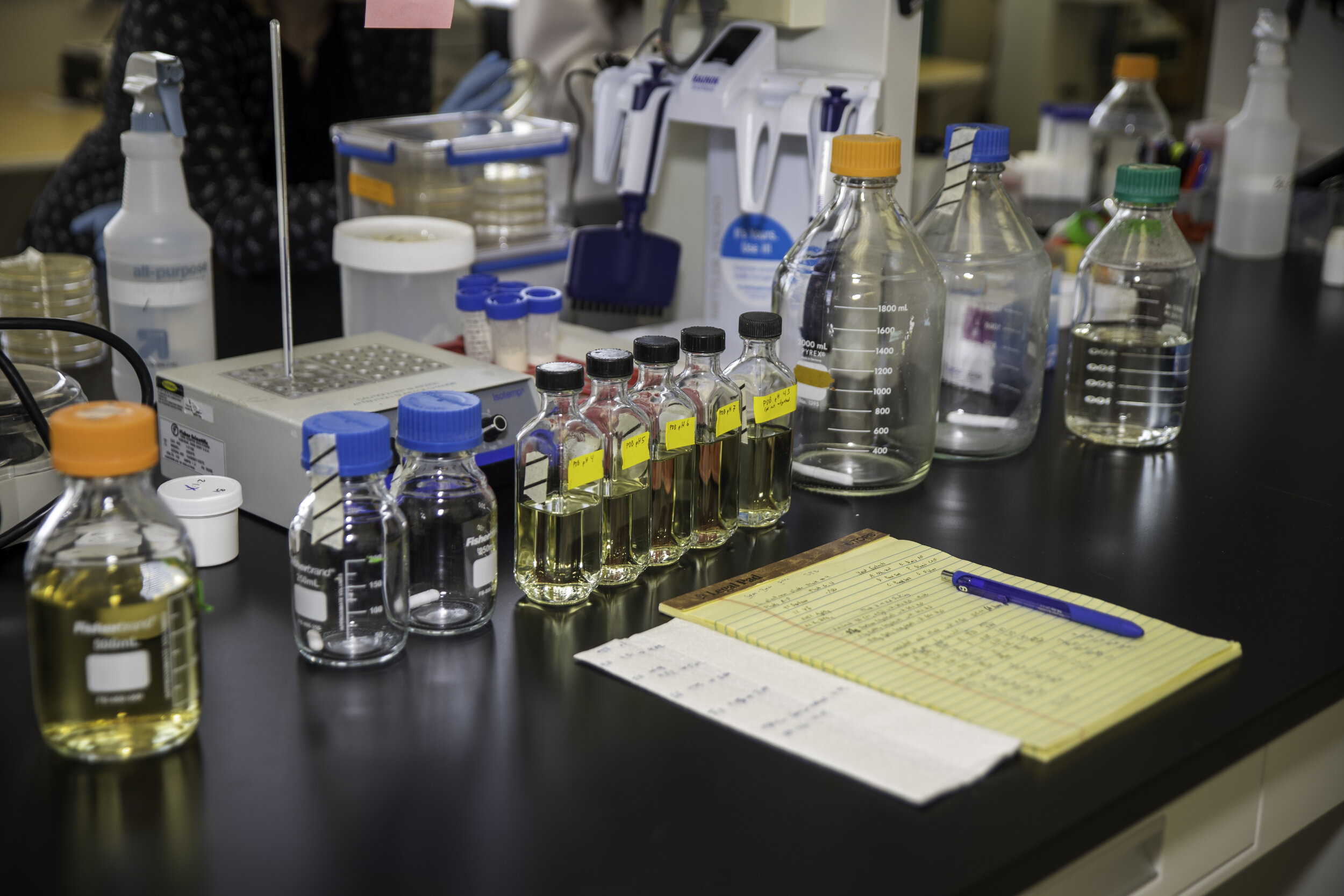
THE POWER OF FERMENTATION
Unlocking Flavor and Texture Through Fermentation
Fermentation is a fundamental biochemical process that drives the transformation of raw substrates into a variety of complex food and beverage products. It underpins the production of staples such as sauerkraut, sourdough bread, beer, wine, and cheese, as well as key flavor-enhancing ingredients like vinegar, soy sauce, and buttermilk. These transformations are made possible by specific microbial consortia, which metabolize sugars and other compounds to produce unique flavors, textures, and aromas.
Advanced microbial research enables us to isolate and optimize specific microorganisms responsible for fermentation, allowing precise control over metabolic pathways that contribute to desired sensory attributes. By characterizing and leveraging these targeted strains, we support manufacturers in enhancing product consistency, flavor complexity, and nutritional value.
Our focus is on employing microorganisms that are Generally Recognized as Safe (GRAS) and have an established history of safe use in food fermentation. This approach ensures we maintain high safety standards while advancing the use of microbial fermentation as a reliable, natural process to optimize and differentiate product profiles without compromising quality or stability.
The Fermentation Process.
So, what exactly is fermentation? In essence, fermentation is a natural process in which microbes consume sugars to generate energy for growth. As these microbes metabolize sugars, they produce by-products like organic acids and carbon dioxide. These by-products are what create the tangy flavors in yogurt and the effervescence in beverages like buttermilk. Whether the sugars come from glucose (non-dairy sources), whey powder (dairy), or other substrates, the core principles of fermentation remain the same.
By carefully controlling variables such as temperature, fermentation time, and pH, we can direct the fermentation process to convert sugars into valuable, fermented food ingredients. These "cultured" ingredients contain organic acids, proteins, and other bioactive metabolites, all produced as the microbes grow. It’s these fermentation by-products that contribute distinctive flavors and help preserve food quality, offering both functional and sensory benefits in a variety of applications.
Your Partner in Fermentation
Reach out to learn more about how Third Wave Bioactives can help you harness the power of fermentation.

